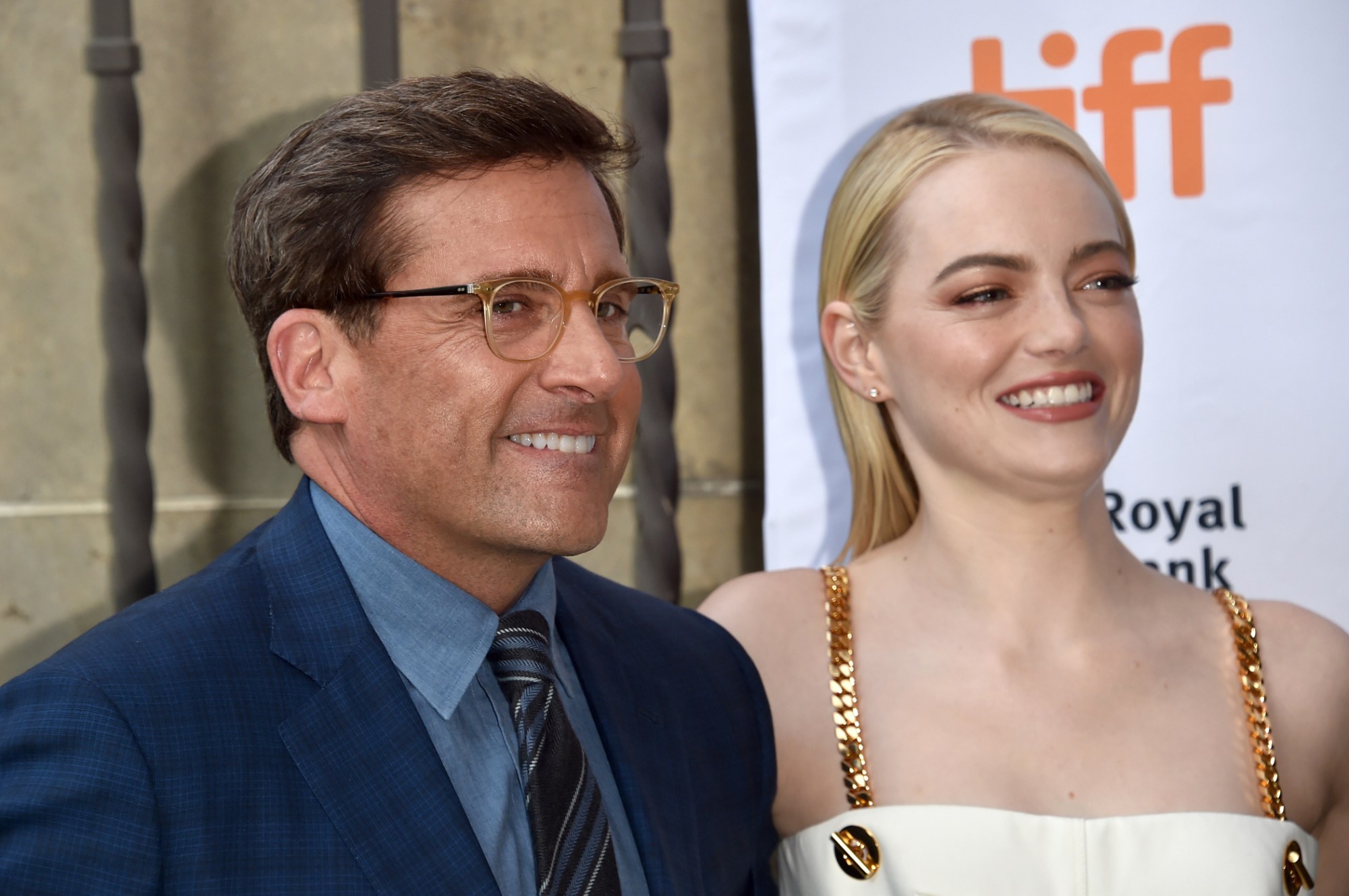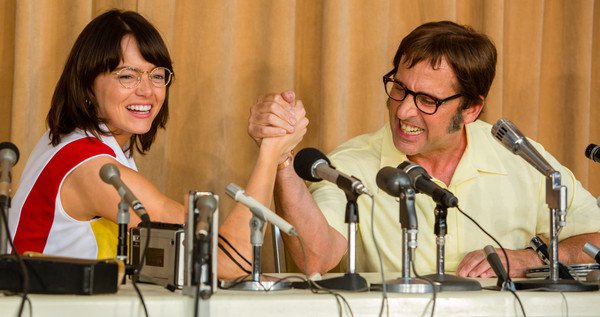
- Festivals
It’s a’Battle’ for Emma Stone and Steve Carell
Emma Stone and Steve Carell do battle in Battle of the Sexes, based on the wild, real-life story of a made-for-TV tennis match.

Films frequently undergo all sorts of different cast and crew permutations during development, and Battle of the Sexes was no different. Danny Boyle was originally attached to direct the movie, based on the iconic 1973 tennis match of the same name – an event which drew an estimated television audience of 50 million in the United States and 90 million worldwide – all to witness then-55-year-old Bobby Riggs, a former Wimbledon champion turned self-described “male chauvinist pig,” match lobs and volleys with ascent women’s star Billie Jean King.
In the end, though, it was the gender-balanced directing tandem of the Golden Globe-nominated Little Miss Sunshine, Jonathan Dayton and Valerie Faris, who helmed Battle of the Sexes – a fact that seems appropriate for social as well as creative reasons. Breathing life into the roles of King and Riggs, respectively, are Emma Stone and Steve Carell – two performers who, like their co-directors, have plenty of successful experience balancing the sort of poignancy and comedic timing required to create lived-in, fully dimensional characters in a comedy-drama of this type.
For Carell, the key to understanding Riggs was grasping his shared neediness and penchant for showiness. “Riggs was a showman for sure, 100 percent. I don’t think he had a political bone in his body,” says Carell in a conversation at the Toronto Film Festival. “I think he was a hustler, a self-promoter. I think he resented the fact that when he was a champion he was never afforded the kind of financial reward or glory that in later years was given to these Wimbledon champions. So I don’t think he got the kind of respect that he really (deserved), and that sort of gnawed at him. He saw this as an opportunity, and specifically he took a page out of Muhammad Ali’s playbook. He saw this (type of exaggerated) persona that Ali had created, where he knew how to manipulate an audience and generate interest in himself. And Riggs did exactly the same thing. He saw the cultural zeitgeist of women’s lib and said, ‘Oh, I’m going to insert myself (into this social debate) as this guy. I’m going to be the male chauvinist pig.’”
Stone, meanwhile, essentially serves as Battle of the Sexes’ straight woman, playing off of Carell’s outrageousness as Riggs. Since the film balances both the lively story of their match with King’s burgeoning homosexual awakening, Stone hopes it will help spark conversations about social issues that are still very much relevant today. “On one level it’s great to be sharing a story that is a true historical event, and obviously Billie Jean is an icon for equality and LGBTQ rights (who) has just affected so much change in the world. So that’s really wonderful, to tell this story about someone whose shoulders we stand on,” Stone says. “But on the other hand, it’s really disheartening that a lot of the themes of the film are still an ongoing struggle today. I mean, there are some nice differences – like women can get credit cards without them being co-signed by a male now, which is good.” Here Stone pauses, laughing. “But there’s still a massive amount of inequality and a lack of equal pay across all industries.”
The Battle continues, in other words – with thought-provoking social commentary dressed up in colorful fashion.

